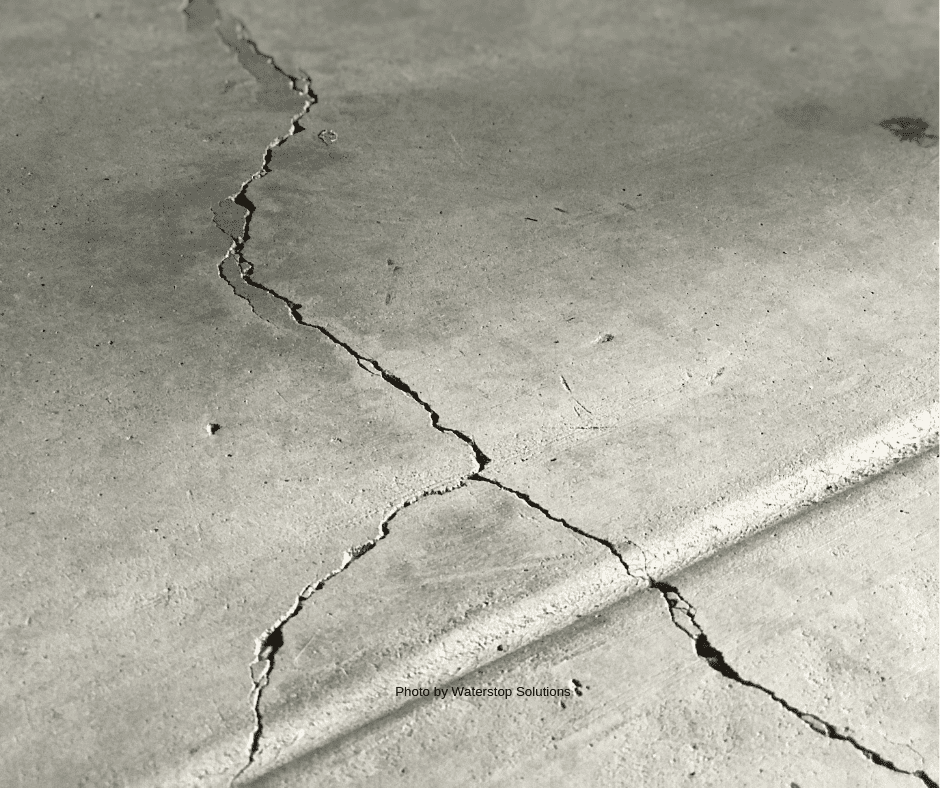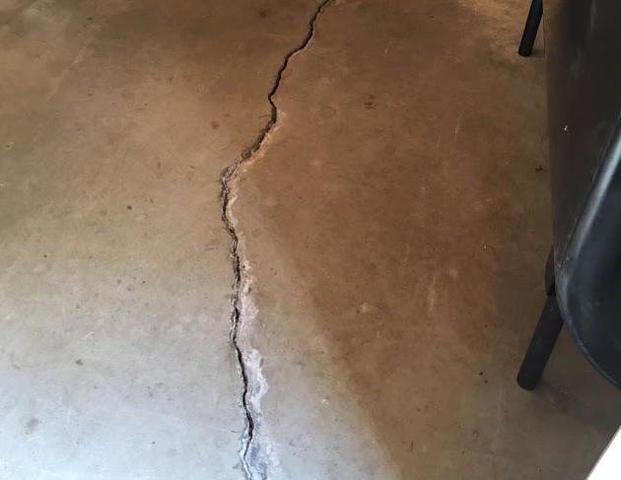cracks in basement floor normal
The most common causes of basement floor cracks are the following. As a result as dirt settles and compresses under your home the concrete will settle with it.

How Do You Know If A Crack Is Serious Waterstop Solutions
Settlement causes cracked uneven concrete basement floors.

. Hairline cracks need no repair and are not indicative of a larger problem. Aside from rare situations like earthquakes. The good news is most basement floor cracks are normal and dont need to be repaired.
The good news is most basement floor cracks are normal and dont need to be repaired. Heaving is common where theres clay soil. For most cases this is completely normal and requires no repair.
In general a small number of tight less than 18 inch wide stable cracks are considered normal shrinkage cracks. Generally basement floor cracks will develop over time and its normal and quite common. It is usually widespread often showing.
Click to see full answer. These cracks generally occur due. Lateral loads and pressures pushing against the basement wall.
Spalling is the general deterioration of the surface of the concrete. 6 types of basement floor cracks - and what they mean Cracks with heaving are signs of a bigger problem that needs to be addressed. The most common cracks found in your basement slab are the hairline cracks.
Cracks in the basement floor can let in water moisture and radon gas. The two concerns for basement floor cracks are heaving and sinking. Foundation movement resulting from soil or other issues.
The basement floor doesnt support the weight of the home so cracks in the floor wont affect the homes structural integrity. However because basement and garage slabs are supported by the ground ¼ in wide or larger cracks vertical displacement at a crack line the slab on one side of the crack line is higher than the other or slab settlement can be a sign of a failure of the ground below and a review is recommended. However some cracks pose a cause for concern.
Most floor cracks are benign and occur shortly after the concrete floor is poured and shrinks as it cures. If they are larger or growing wider then you probably have uneven settling taking place and the slab is not strong enough to tolerate the movement. The most common cause of basement floor cracks is shrinkage.
The majority of basement wall cracks occur because of the following reasons. TYPES OF BASEMENT CRACKS CAUSE AND CURES HAIRLINE CRACKS OR THOSE A LITTLE BIGGER. Small surface cracks aka hairline cracks are common and nothing to worry.
Are cracks in the foundation floor normal. Basement floor cracks or cracks in a concrete floor are easy to fix. Typically settlement occurs when the soil beneath your foundation is too unstable to support the weight of your home and it shifts.
These are usually hairline cracks that never change over time. The floor contains water and cement6 that gets solid with time and shrink as well. The cracks form at the stress points.
Cement shrinkage often causes foundation floor cracks but this isnt always a big cause for concern. The basement floor doesnt support the weight of the home so cracks in the floor wont affect the homes structural integrity. Step cracks are comparable to diagonal cracks but they occur in concrete block basement walls.
However some cracks in the basement floor can let in water moisture and. Cracks in the basement floor can let in water moisture and radon gas. Hydrostatic pressures involving wet soils high water tables and other water issues.
Concrete floors with cracks and sinking should be leveled. Cracks in the basement floor can be a cause of panic for homeowners. Cracks in the Foundation Floor.
If the cracks grow gradually bigger with time become larger than 18-inch cause the unevenness of the floor surface or display other signs of serious damage to the structure then this is the time you should be worried and must. Basic causes of basement wall cracks. Floor cracks occur for a few different reasons but hinge on the point that this is a large and thin concrete slap thin compared to how wide and long it is.
Another common cause of cracks in basement floors is when the concrete slab begins to settle. This requires tensile strength provide by rebar placed in a grid in the slab. The shrinkage depends upon the temperature of the basement.
The shape or pattern of the crack is irrelevant. The good news is most basement floor cracks are normal and dont need to be repaired. A spider web crack versus a straight hairline crack makes it no more dangerous.
Be they straight jagged or spiderweb-like fine cracks in the basement floor commonly result from surface shrinkage as.

Basement Foundation Floor Cracks Repair In Atlanta Georgia

Basement Floor Cracks Aa Action Waterproofing

Basement Floor Crack Widening In Newly Built Home Is This A Problem Home Improvement Stack Exchange

Causes Of Basement Floor Cracks And What To Do About Them News And Events For Basement Systems Inc

Causes Of Basement Floor Cracks And What To Do About Them News And Events For Basement Systems Inc

Causes Of Basement Floor Cracks And What To Do About Them News And Events For Basement Systems Inc

Causes Of Basement Floor Cracks And What To Do About Them News And Events For Basement Systems Inc

What Causes Cracks In Basement Floors Everdry Toledo Ohio

Should I Be Worried About Cracks In My Concrete Floor Leisure Villas